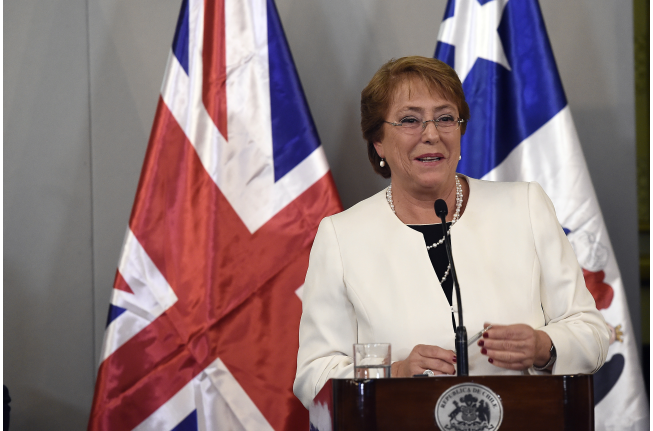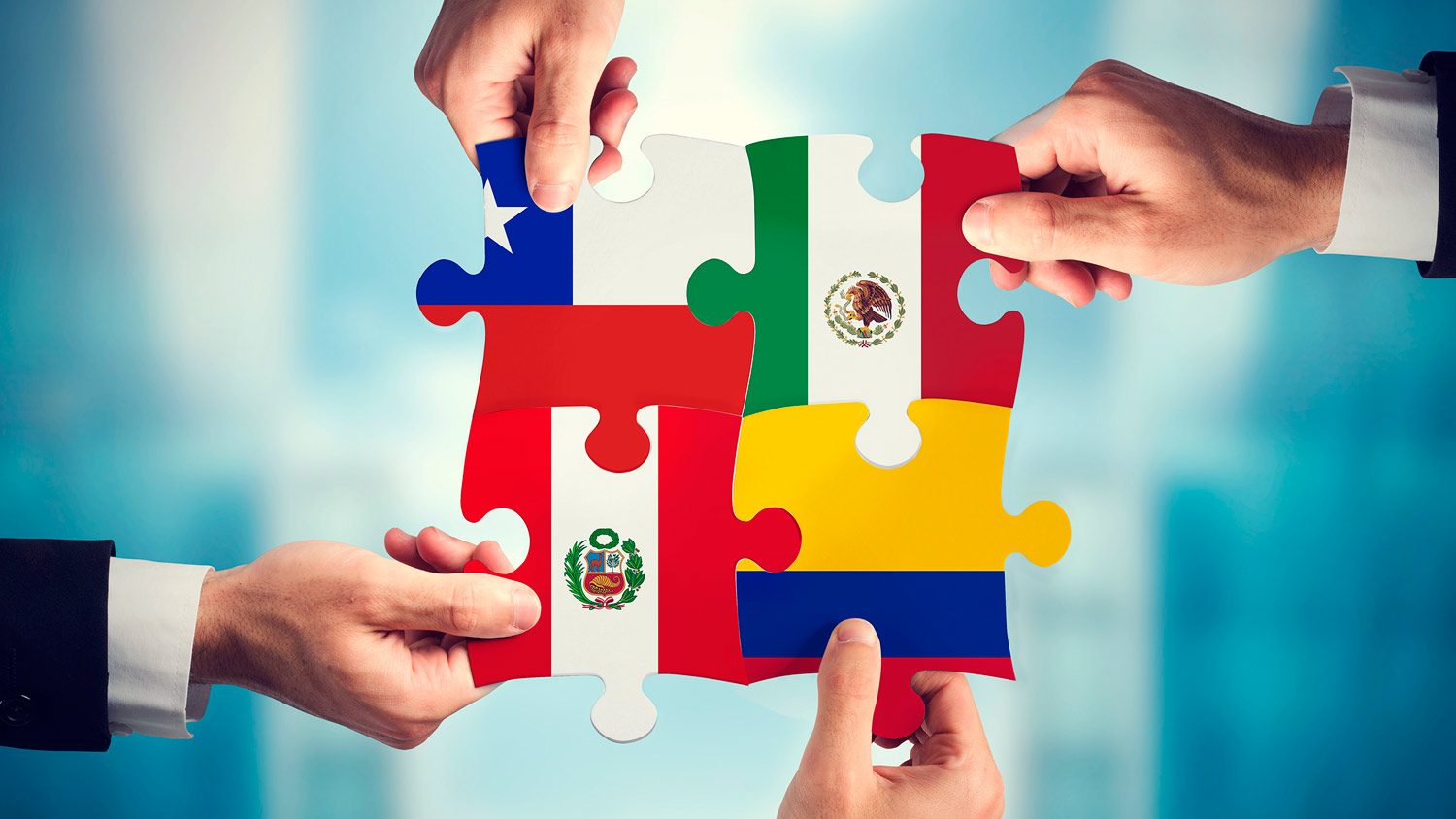Chile Day London 2016 - not just the Brand anymore

Chile day's 9th version was successfully held in London (May 12-13). As customary - and necessary for the Chilean economy - global investors have met with Chilean governmental authorities in London to analyze business opportunities in Chile. In turn, governmental authorities have reassured investors that "the rules of the game" are still in place in a new political era, under second-generation reforms launched to hit inclusive growth.
Chilean President Michelle Bachelet was at Chile Day after her presidential tour to Finland and Switzerland. The timing of Chile Day with the "red tide" effects on the Chilean coastline and subsequent strikes on the island of Chiloe highlight the institutional challenges on governance and issues of contemporary significance, such as the collaterals of climate change. Chile Day 2016 coincides with news in the media on a billionaire fraud case by the high-ranking military over the handling of the mandatory 10% copper sales allocation to military defense. These challenges provide important clues for a correct analysis of the political, economic, and social landscape of transformations that Chile is undergoing after a 25-year political cycle that saw governance prevail without major disturbances.
Today, after the many advances in growth per capita during the 25-year transition period and the omission to tackle growing inequalities, contestation from the social sphere and social actors such as student mobilizations have put governance at the center of the governmental agenda. Country Risk Chile’s analysis focuses on the 9th version of Chile Day in light of the political discourse made by President Bachelet herself on the inauguration day in London. President Bachelet’s address marks a turning point in the so-called Iceberg metaphor (Larrain, 1997), symbolizing the view of the Chilean elite entering the game of trade with a collected brain to become a winning country. The metaphor can be traced back to ExpoSeville, where Chilean entrepreneurs brought a piece of an iceberg from Chilean Antarctica to signal their distinctive pragmatism away from disturbances in Latin American countries. The metaphor explains the Chilean "brand.” Today, the metaphor has been transformed into a hybrid creature. The collected brain still prevails, but contestation and dissatisfaction of the civil society over inequalities have reached the shores of Chile, just as the red tide and El Niño phenomenon have done, affecting a once cooler atmosphere and demanding attention to its needs.
Chile Day's Presidential address signals the usual focus on keeping the brand for years to come and the need to incorporate the human element in governance in times of contestation. The narrative in sustaining the brand for years to come requires creativity and inclusiveness.
Consolidating Democracy and playing the rules of the game:
When Chile recovered the democratic game by 1989 with Patricio Aylwin as the first elected President after Pinochet's rule, the path was certain. The entrepreneurial elite saw an opportunity to grow in a democracy, with access to the financial market, and the political class recognized that the legacy of a neoliberal setting could provide a path for progress and welfare. Thus, the local elite became embedded in the global market, and politicians designed the framework to move to a social-market society by resorting to the politics of "consensus.”
Numerous FTAs were signed as of 2004. Growth levels and the alignment between the new political class and the entrepreneurial elite produced stability and governance, reinforcing the growth path. However, disparities were not properly recognized as potential threats against sustainable growth; educational variables such as quality and equity were not given a national priority. Coverage in education improved, and poverty rates improved. Still, ruinous loans to pay university fees prompted empowered students to take to the streets for quality and an end to educational profit. In the 2013 electoral cycle, Bachelet’s second government replicated the new state preferences to tackle disparities.
After 2 years of fierce ideological debate on second-generation reforms, the Nueva Mayoria center-left government has launched a much-debated tax reform and an education reform. In the context of external shocks, such as the end of the commodities boom with low-record copper prices worldwide. During the boom, Chile grew at a 5/6% annual GDP rate. Current macroeconomic factors have called for the fiscal rule to be in place on rainy days, with a restricted budget and moderation on reforms inside the Government Agenda. Moreover, amidst the attrition of the economic elite and the political class with recent corruption cases and irregular political campaign financing, the recently enacted law on political parties' funding has successfully included severe jail penalties for those breaking the law. In that sense, the cases reaching the courts and making the headlines in local media are a strong indicator Chile reached the end of the 25-year cycle with empowered citizens, a free independent judiciary, and a press.
Indeed, the 2016 version of Chile Day must be analyzed in light of President Bachelet's speech. In addition to official meetings with prospective and current global investors in Chile, Bachelet explained the imperative that Chile has to attain value-added products to boost competitiveness and increase productivity, promoting Chile as a key player in a knowledge society. Bachelet emphasized economic integration, commerce, and trade regionally, globally, and bilaterally. To that end, the Chilean President was clear that education was the driver to bridge the inequalities and thus promote young students' preparedness for 21st-century challenges, such as skills and collective strengths, to secure a consolidated democracy.
Bachelet also discussed the efforts being made to bring the Alianza del Pacifico bloc (Pacific Alliance - Peru, Chile, Mexico, and Colombia) to cooperate with the MERCOSUR bloc (Argentina, Uruguay, Brazil) in areas of convergence despite their differences in trade rules.
The 2002 Chile - EU deal:
In a private meeting with Prime Minister David Cameron at 10 Downing Street on May 13th, Bachelet expressed her interest in a modern version of the Chile-UE Free Trade Agreement. Negotiations will be in earnest by the end of 2016. She favored a yes vote in the Brexit referendum and backed Cameron's effort to remain in the bloc. Cameron expressed publicly that the Chilean economy was an example for LA countries.
Country Risk Chile’s analysis on Chile Day is optimistic on the opportunity side, despite the risk of diminished FDI in the country due to external macroeconomic factors and second-generation reforms underway to tackle disparities. The positive outlook relies on the fact that the 9th version of Chile Day has continued to see initiatives to strengthen Chile's more than 64 commercial deals and FTA worldwide, which points to the defensive-offensive strategy in Chilean foreign policy. Opportunity also lies in Bachelet's recognition that the time has come to hit inclusive growth, bridge inequalities, invest in education, attain value-added to boost productivity, and weigh on the challenges ahead for good governance and sustainable growth.
The world shares these challenges today, such as transparency goals, climate change, as experienced lately in Chiloe, economic slowdown, and the urgent need for a value-added export matrix.
Bachelet further added that the greatest resources were in Chile's countrymen, industrious men and women, with a desire to contribute to the national welfare. Bachelet stated Chile was still attractive to invest in because the rule of law was in place. Chile is a market-friendly country with numerous FTA's and bilateral treaties to uphold and respect.
Country Risk Chile assesses present-day challenges as part of a new political era that calls for innovation, creativity, and sustainability. Chile counts on political capital: the Iceberg factor still cools the mind of Nueva Mayoría's governing coalition to thrive reforms in moderation. However, just as melting the ice caps in the Arctic should alert us and make us rethink survival strategies, so should contestation from the middle classes claiming to enter the game, bridge the gaps, and minimize inequalities. Contestation and climate change, as in the red tide, are not isolated, one-time phenomena anymore. They are here to stay longer than expected, and strategies must be found to attain good governance and coalesce the population. Chile Day's inaugurating speech is about that.
Chile Day is a public-private initiative organized by InBest Chile, and it aims to strengthen ties with social partners in a bilateral relationship under the EU-Chile deal umbrella. In that regard, Bachelet expressed her desire for a Yes vote in the Brexit referendum. Rodrigo Valdes, Finance Minister, took the floor to clarify that if Chile is experiencing less FDI, it is due to the uncertainty of second-generation reforms underway in Chile, but in no way were these reforms a threat to the rule of law. Valdes emphasized that low investor confidence should not be mistaken for judicial uncertainty. The rules of the game have been upheld for the last 25 years.
Chile Country Risk agrees with Valdes's estimates on Chile's capacity to attract investors. Chile is transforming the end of a super commodity cycle that saw governance and alignment between elite and non-elite classes. Still, that cycle is shifting to a new one, where citizens demand more opportunities to enjoy the fruits of growth. The Central Bank President, Rodrigo Vergara, was also there to speak on the fiscal rule, the austerity measures on rainy days, and Chilean banks’ financial resilience due to sound fiscal procedures. Chile still enjoys an AA+ rating by S&P.
Why invest in Chile today?
Because Chilean authorities understand that the economic benefits obtained from an open economy, in 25 years of democratic stability, are as big in gains for capital stakeholders and businesses as they are for the population in Chile.
As for the labor reform - still under Parliamentary debate- there is clarity that entrepreneurs and politicians will take recourse to the politics of consensus to reach a compromise after the legal discussions are exhausted. Chilean institutions can reach the port and perfect the technical aspects of the reform to tune in with 21st-century demands and guidelines. As for talks on a New Constitution, the Finance Minister said in London that such a move should not scare off investors and that the population can freely express their views on aspects they believe are prominent in a post-transition Chile, which, by no means are legally binding, therefore, over the years, novel ideas can be incorporated into a new Magna Carta that is regarded as democratically legitimized. Country Risk Chile estimates there is political maturity to embrace a Constitutional reform process.
Chilean authorities from all the political spectrum agree that Chile still needs to gain more from trade to fulfill equal opportunity goals and sustainable growth for all; consequently, the rules of the game will continue to be in place, all points to the fact that the country is not shifting to statism, rather it is improving the rules for those talented citizens who wish to participate for their share in trade and welfare.
Second-generation reforms intend to bring more opportunities to citizens in line with the All-Chilean-on-board report guidelines by OECD to hit inclusive growth and keep governance and stability afloat and the Chilean brand for years to come.
Soledad Soza, May 24th, 2016
